新闻中心



第九届上海“数字未来”
暑期工作营正式启动招募
2019 DigitalFUTURES Shanghai
建筑智能
Architectural Intelligence
主办单位
同济大学
联合主办单位
中国建筑学会 计算性设计学术委员会
中国建筑学会 数字建造学术委员会
全国高等院校建筑学学科专业指导委员会 建筑数字技术教学工作委员会
同济大学建筑设计研究院(集团)有限公司
承办单位
同济大学建筑与城市规划学院
上海建筑数字建造工程技术研究中心
协办单位
同济大学本科生院
支持单位
一造科技
DADA
全筑股份
支持媒体
建筑学报 | 时代建筑 | 世界建筑 | Architecture China | 西部人居环境学刊 | 南方建筑 | 建筑技艺 | 建筑实践 | 有方 | 谷德设计网 | ArchDaily | Dezeen

工作营招募
报名方式
参加请将三个意向的工作营组名、个人简历、报名表及作品集发送至邮箱digitalfutures2019@tongji.edu.cn
Email 标题格式
工作营报名+姓名+学校/单位+第一志愿组号
招生要求
工作营面向海内外高校学生、高校教师学者、以及社会专业人士开放报名(报名者需至少持有本科学位).我们建议当前本科学生通过参加DigitalFUTURES本科生竞赛获取进入工作营学习的名额,竞赛细节会在近期发布。
费用
本项目不收取任何费用,学生自行承担差旅和食宿。.
报名截止日期
2019/05/17
报名表下载
百度网盘
https://pan.baidu.com/s/1ZKK2nF37amp6S8T203eNcA
Google Drive
https://drive.google.com/file/d/1UJuQvaFoWIRANf0cPWzduoozE8J_krIB/view?usp=sharing
活动议程
2019 DigitalFUTURES Shanghai
建筑智能工作营
时间 2019/6/29 - 7/6
地点 同济大学建筑与城市规划学院
第一届数字设计与机器人建造国际会议
时间 2019/7/7 - 7/8
地点 同济大学建筑与城市规划学院
建筑设计国际博士生项目
同济大学建筑与城市规划学院
同济大学建成环境技术中心
时间 2019/6/22 - 6/27, 7/9 - 7/14
地点 同济大学建筑与城市规划学院
主题解读
2019 “数字未来”活动的主题是:建筑智能(Architectural Intelligence)。会议与工作营将会探讨人工智能和大数据如何为我们的设计提供信息、机器人如何建造我们的建筑,以及增强现实与虚拟现如何将自身的潜力可视化。
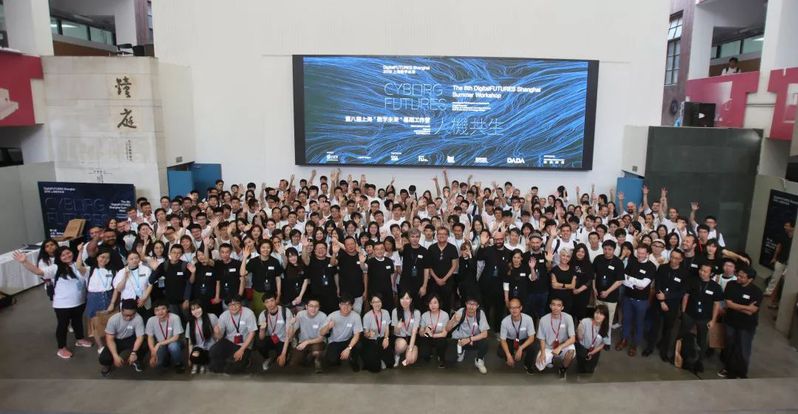
2018“数字未来”工作营
工作营内容
“数字未来(DigitalFUTURES)”是一年一度的学术活动,该活动由同济大学建筑与城市规划学院主办的一系列会议、工作营及展览构成。“数字未来”活动始于2011年,旨在促进各学术机构中数字设计和机器人建造的理论与科学研究,并鼓励国际合作与互动。
九年来进行实验性数字工作坊的传统,已使同济的年度“数字未来”夏季工作坊成为全球最受欢迎和最先进的工作坊之一。这些工作营将由世界上一些最杰出机构的顶尖专家教授带领,其中包括ETH,UCL,斯图加特ICD,RMIT,密歇根大学,南加州大学,当然,还有同济大学,此外还包括进行建筑实践的扎哈哈迪德建筑师事务所、小库科技以及城市数据团。
本届工作营各组的主题及导师如下,便于大家初步了解。各组的详尽介绍将于近日发布,敬请关注。
Group 1 ETH ZURICH
数字张拉模具混凝土薄壳设计
Philippe Block (ETH Zurich)
Tom Van Mele (ETH Zurich)
此工作营将会在COMPAS平台上进行,并完成一个大尺度的混凝土壳体,整个壳体的施工模板为缆绳网和织物。此工作营需要学员预先有良好的Python基础,使用熟练。
Group 2 ICD STUTTGART
F5: 移动机器人的柔性建造
Achim Menges (ICD Stuttgart)
Maria Yablonina (ICD Stuttgart)
Samuel Leder (ICD Stuttgart)
本次工作营将通过定制的移动机器集群来进行柔性结构建造,探索智能集群机器人在创造适应性空间应用中的最新趋势。
Group 3 ZHA | CODE
获取,设计,交付:
城市密集化的综合解决方案
Shajay Bhooshan (ZHA | CODE)
本工作营旨在通过数字赋能形成一种有必要的,可持续的和充满活力的城市密集化模式。利用基地和消费者社区的物理和社会信息,通过数字技术为获得的核心信息进行设计并通过机器人制造得到设计结果。
Group 4 UCL
增强现实木构
Gilles Retsin (UCL)
本次工作营将探索使用增强现实技術(AR)进行模数化木构组装的可能性。我们将设计一系列通用的,具有连续性的积木式模块构件。借助虚拟现实头戴式设备,我们将对建筑构件在物理空间和虚拟空间中实现实时追踪。
Group 5 RMIT
御力于形:
基于拓扑优化的建筑形态生成与建造
谢亿民 Mike XIE (RMIT)
鲍鼎文 Dingwen BAO (RMIT)
严鑫 Xin YAN (RMIT)
此次工作营将通过双向渐进结构优化法(BESO)及其软件Ameba的讲解及应用,引导学生从力学模拟的角度思考建筑形态的生成方法。学生们将通过个人和分组的方式完成空间结构找形和节点的优化设计与3D打印,并协力建造一个大跨度轻型空间装置。
Group 6 USC
混合现实中的城市环境移动平台
Biayna Bogosian (USC / Columbia University)
Runze Zhang (Doorwi)
Alessio Grancini (Doorwi)
本次工作营旨在开发一个基于混合现实的协作式移动端应用程序。该应用允许用户在探索城市的同时,感知城市环境数据并与之互动。我们将进行定位式环境感知并开展可视化工作流,以提高建筑师与城市设计师的环境素养。
Group 7 TONGJI + UPenn
人工智能与建筑/城市
Neil Leach (CAUP, Tongji University)
Claudiu Barsan (CAUP, Tongji University)
郑豪 Hao Zheng (University of Pennsylvania)
本工作营将探索人工智能为城市与建筑的生成提供的新角度。由神经网络模型训练的“找形机器”能否指导建筑的创作?爵士乐的逻辑与机器学习如何结合并应用于城市图形生成?本工作营将围绕这两个问题,探讨基于人工智能的设计潜力。(学员应具有一定的编程基础)
Group 8 CITY DATA GROUP
智慧城市决策
汤舸 Tang Ge (MetroDataTech | City Data Group)
黄积小 (大鹏) Huang Jixiao / Dapeng (MetroDataTech | City Data Group)
冯宗良 Feng Zongliang (MetroDataTech | City Data Group)
通过智慧城市决策这一项目,学员将从城市大数据的角度学习如何管理城市数据库,并使用数据分析技术、机器学习及人工智能的方法进行城市研究。更进一步来说,学员还将从互联网产品的角度学习如何进行城市研究的分工协作。
Group 9 TONGJI
多场协同无人机自主建造
王祥 Xiang Wang (CAUP, Tongji University)
于士贤 Shixian Yu (Beijing LinksTech)
袁烽 Philip F. Yuan (CAUP, Tongji University)
本次工作营试图建立并尝试一种基于多终端协同智能建造的数字控制策略,试图建立相关的工作流程并解决其中的关键技术。工作营拟针对离散化结构,利用多代理系统对目标结构进行自主拟合,生成相关的建构策略,并完成最终的小型建构。
Group 10 XKOOL TECHNOLOGY
人工智能城市:
图像判别模型与城市评估系统
何宛余 Wanyu He (XKool Technology)
李春 Chun Li (XKool Technology)
杨小荻 Xiaodi Yang (XKool Technology)
杨良崧 Jackie Yong (XKool Technology)
城市图像数据如卫星图或街景图在分析和理解城市上具有一定潜力。本次工作坊尝试聚焦在特定的一个城市尺度如街道,在结合去年基于深度学习下的卷积神经网络所训练的图像判别模型基础上,本次工作坊尝试将此模型继续深化,探讨其在某城市尺度下的分析和评估系统中的应用可能。此城市分析和评估系统对于城市规划或建筑设计的决策上具有一定的参考意义。
Group 11 UMich
全息构造
Matias del Campo (University of Michigan)
Sandra Manninger (University of Michigan)
AR/VR提供了一种全新的位于真实物理环境和计算机驱动的信息之间综合生态,本次工作营将AR/VR技术用于机器人建造,以探索AR/VR技术在建筑领域的新兴应用,并完成数字建造作品。
Group 12 TONGJI
多材料机器人建造
袁烽 Philip F. Yuan (CAUP, Tongji University)
柴华 Hua Chai (CAUP, Tongji University | Fab-Union)
张立名 Liming Zhang (CAUP, Tongji University | Fab-Union)
刘一歌 Yige Liu (CAUP, Tongji University)
机器人在拥有智能感知能力后能创造出怎样的特殊工艺?木材、合成树脂和纤维材料的融合能展现出怎样的新材料性?本次工作营将从以上两个问题出发进行试验建造,并最终完成两件产品。.
历届工作营回顾
2018
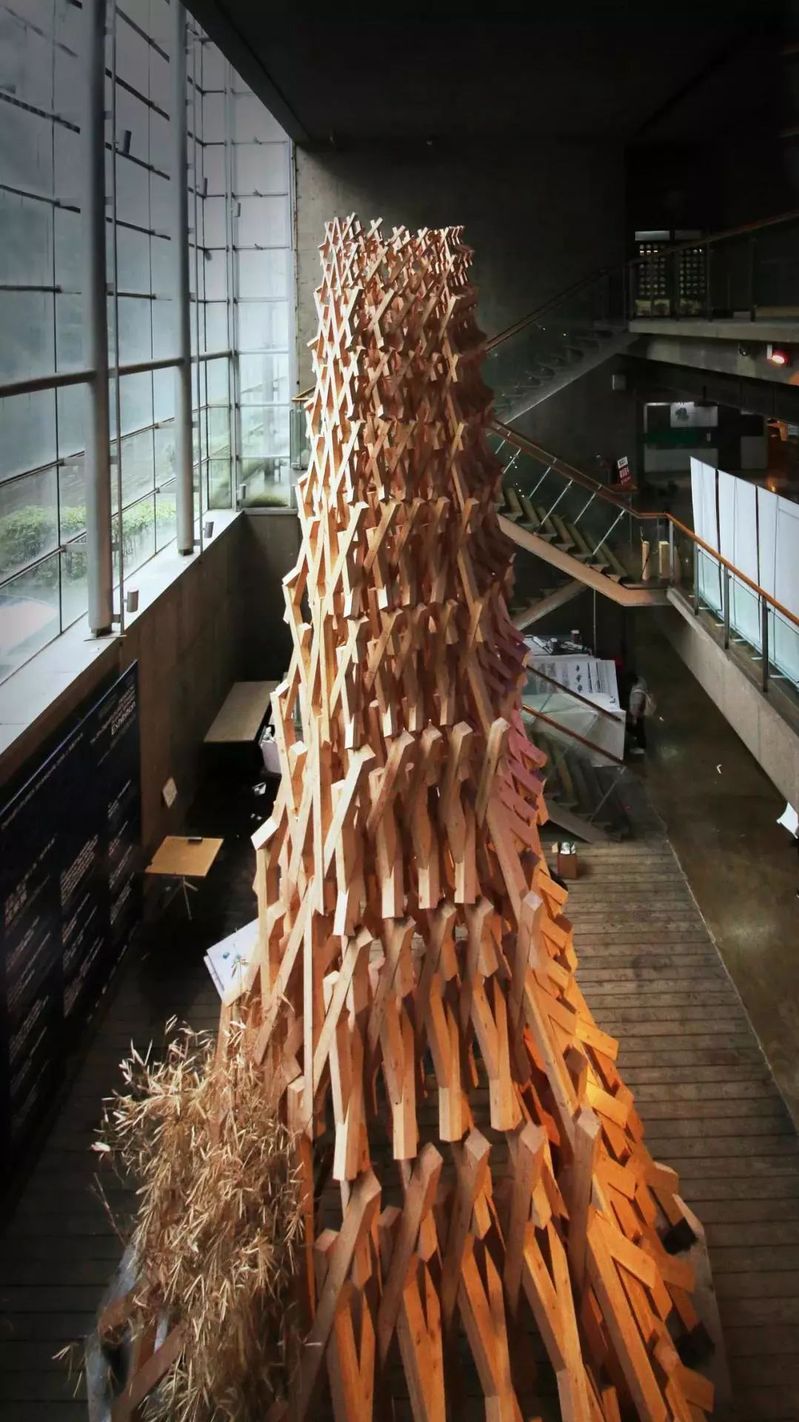
机器人木匠
指导老师:Philip. F. YUAN, Hua CHAI
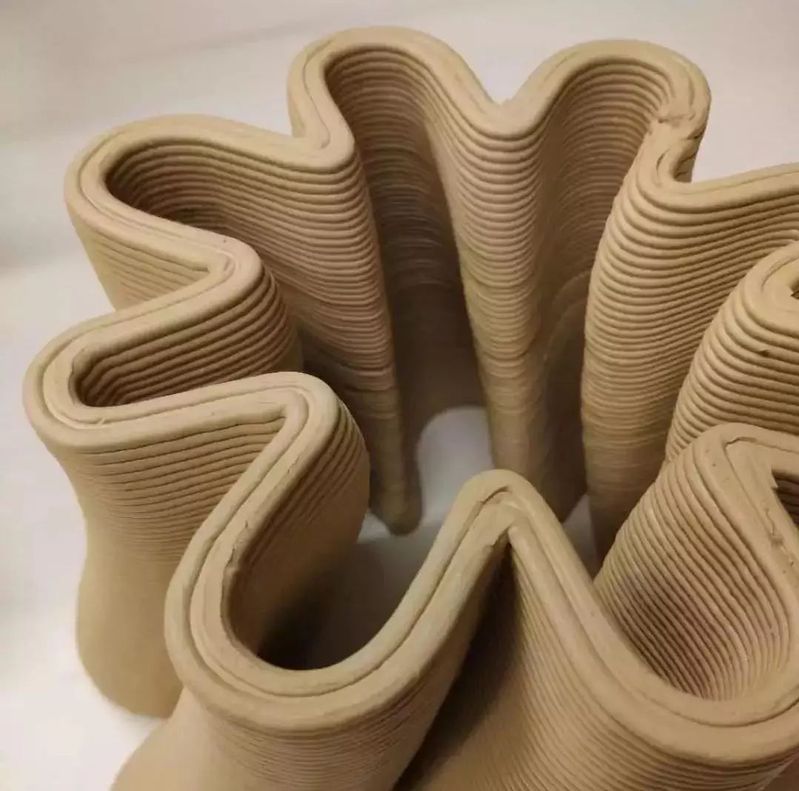
高速打印堆叠结构
指导老师:Patrik Schumacher, Shajay Bhooshan, Federico Borello, Taole Chen, Xuexin Duan (ZHA | CODE)
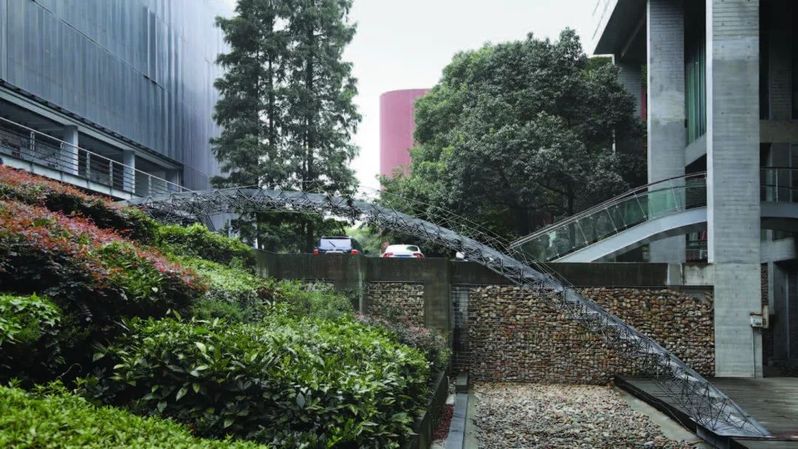
机器人金属打印
指导老师:Philip. F. YUAN

智能材料编码
指导老师:Achim Menges, Dylan Wood, Tiffany Cheng (ICD Stuttgart)
2017
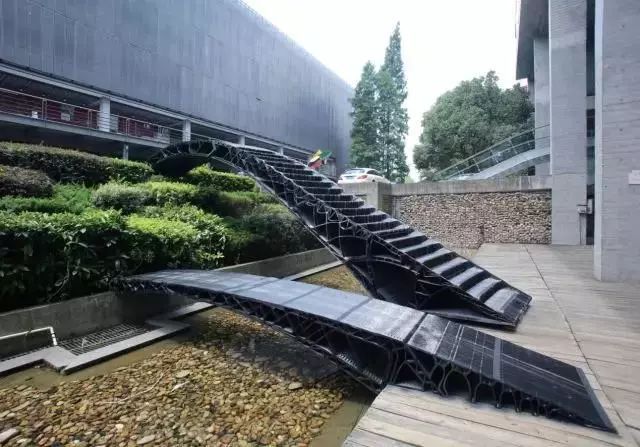
器人3D打印
指导老师: Philip F. Yuan, Gang Meng
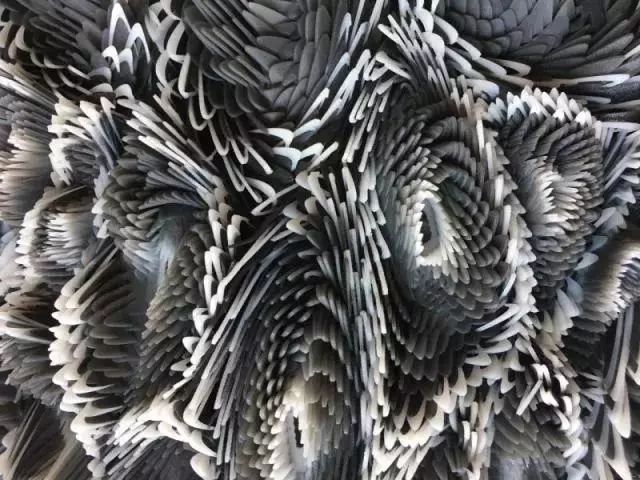
3D打印的身体建筑学
指导老师:Behnaz Farahi(USC), Neil Leach (Tongji)
2016
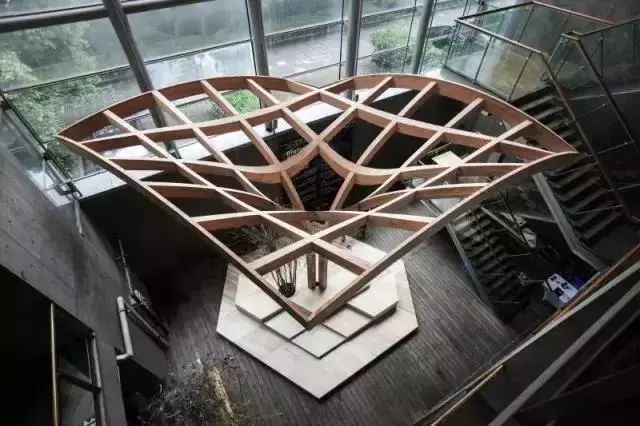
机器人木构建造/Robotic Wood Architecture
指导老师/Instructor:Philip F. Yuan
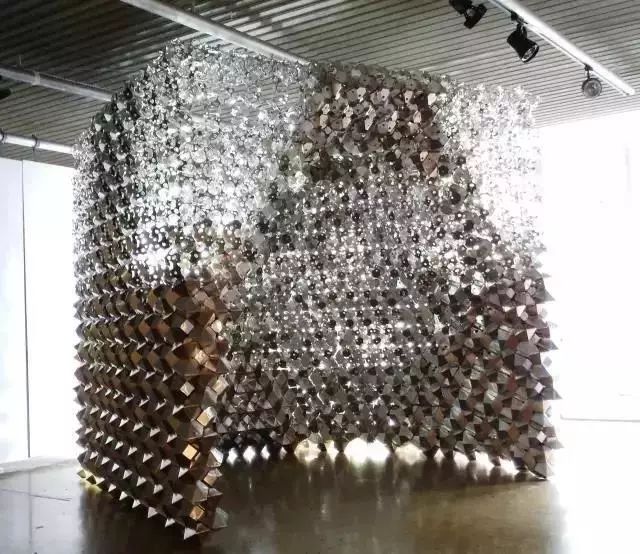
粒子建构
指导老师:Matias del Campo & Sandra Manninger
2015
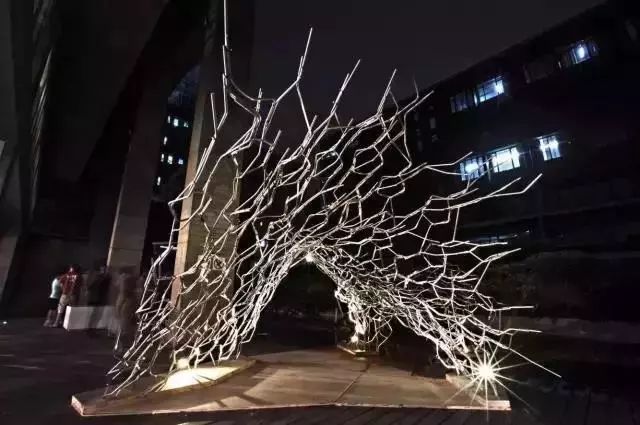
机器人协同建造
指导老师:Roland Snooks
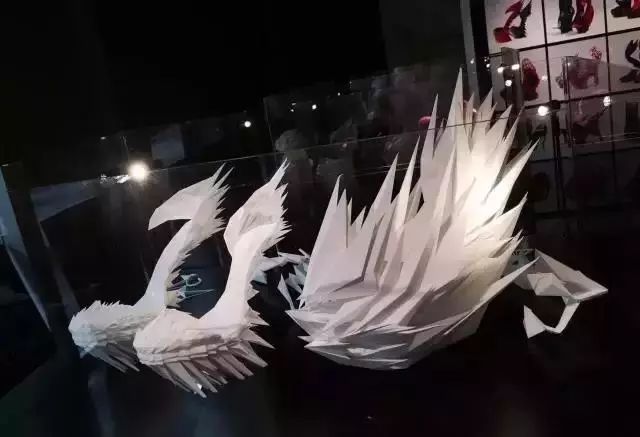
3D打印时装
指导老师:Steven Ma, Rem D·Koolhaas
Apply Now
2019 DigitalFUTURES Shanghai
Architectural Intelligence
Host
Tongji University
Co-organizers
ASC-CCD
ASC-VACS
Education Committee of Digital Technologies in Architecture
Tongji Architectural Design (Group) Co., Ltd.
Organizer
College of Architecture and Urban Planning, Tongji University
Shanghai Digital Fabrication Engineering Technology Center
Partners
Tongji Undergraduate School (TUS)
Support
Fab-Union
DADA
Trendzone Construction Decoration Group Co.,Ltd.
Media
Architectual Journal| Time+Architecture | World Architecture | Architecture China | Journal of Human Settlements in West China | South Architecture | Architecture Technique | Architectural Practice | Position | gooood | ArchDaily | Dezeen

Enrollment
Enrollment
To register please send your CV, portfolio, application form and a list of 3 workshops in order of preference to digitalfutures2019@tongji.edu.cn
Email Theme
Workshop Application + Full Name + Institude + First Preference Group Number
Qualification
All students, scholars and professionals with a bachelor’s degree or above are welcome to apply for a place on these workshops. Current undergraduate students may also apply for a place by entering the DigitalFUTURES International Competition for College Students. Details of this competition will be released soon.
Fee
NO FEES: Students are responsible for travel and accommodation costs.
Application Deadline
2019/05/17
Links for Application Form
Baidu Netdisk
https://pan.baidu.com/s/1ZKK2nF37amp6S8T203eNcA
Google Drive
https://drive.google.com/file/d/1UJuQvaFoWIRANf0cPWzduoozE8J_krIB/view?usp=sharing
Schedule
2019 DigitalFUTURES Shanghai
Architectural Intelligence Workshops
Dates: 2019/6/29 - 7/6
Location: CAUP, Tongji University
International Conference on Computational Design and Robotic Fabrication (CDRF 2019)
Dates: 2019/7/7 - 7/8
Location: CAUP, Tongji University
International Ph.D program of Architecture
College of Architecture and Urban Planning, Tongji University
Built Environment Technology Center, Tongji University
Dates: 2019/6/22 - 6/27, 7/9 - 7/14
Location: CAUP, Tongji University
Theme
The theme for the 2019 DigitalFUTURES is ARCHITECTURAL INTELLIGENCE. The conference and workshops explore how artificial intelligence and big data inform our designs, how robots fabricate our buildings, and how augmented reality and virtual reality help to visualize their potential.
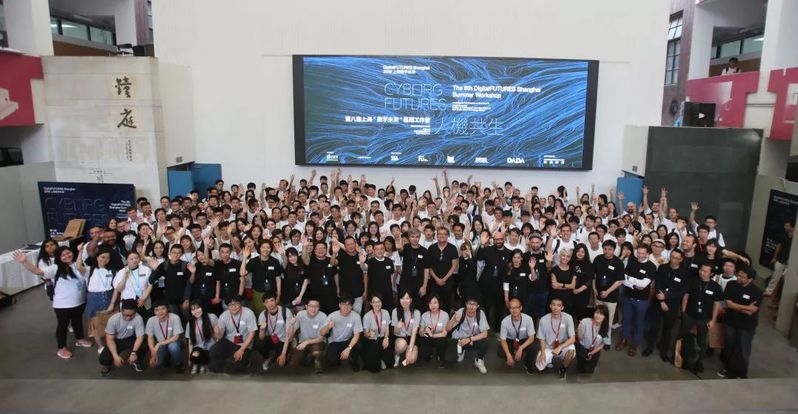
2018 DigitalFUTURES Workshop
Workshop
"DigitalFUTURES" is an annual academic event series consisting of conferences, workshops, exhibitions hosted by the College of Architecture and Urban Planning, Tongji University. Started in 2011, the aim of the “DigitalFUTURES” is to promote theoretical and scientific researches on computational design and robotic fabrication among academic institutions and encourage collaborations and interactions internationally.
Architectural Intelligence is the theme of this year's DigitalFUTURES workshops at the College of Architecture and Urban Planning, Tongji University, Shanghai. It builds upon an 9-year tradition of experimental digital workshops that have made the annual DigitalFUTURES summer workshops at Tongji among the most popular and progressive in the world. The workshops are all taught by leading experts from some of the most distinguished institutions in the world including ETH, UCL, ICD Stuttgart, RMIT,University of Michigan, USC and, of course, Tongji, together with cutting edge practices, such as Zaha Hadid Architects, XKool and City Data Group.
The brief introduction to the theme and instructors of each group is listed below. More detailed information will be released soon.
Group 1 ETH ZURICH
Computational Design and Engineering of Tensioned Formworks for Concrete Shells
Philippe Block (ETH Zurich)
Tom Van Mele (ETH Zurich)
This will be an intense workshop based on COMPAS software to design and realize a large-scale concrete shell, built using a cable-net + fabric formwork. Students on this workshop need to have a good command of Python.
Group 2 ICD STUTTGART
F5: Fashioning Fabricators for Flexible Forms
Achim Menges (ICD Stuttgart)
Maria Yablonina (ICD Stuttgart)
Samuel Leder (ICD Stuttgart)
The workshop will explore the recent trend of collective robotic construction through the implementation of bespoke mobile machines to create adaptable spaces.
Group 3 ZHA | CODE
Acquire, Design, Deliver:
Integrated Solutions for Urban Densification
Shajay Bhooshan (ZHA | CODE)
This workshop aims to develop a necessary, sustainable and dynamic urban intensification model through digital empowerment. Drawing upon physical and social information from the site and consumer communities, the intention is to develop a design based on the core information obtained through digital technology that is subsequently constructed using robotic fabrication.
Group 4 UCL
Augmented Timber Assembly
Gilles Retsin (UCL)
This workshop will explore the possibilities of Augmented Reality with modular timber assemblies. We will develop a set of serialised, modular, CNC milled, plywood building blocks, engineered to perform in any structural situation. We will experiment with tracking the building blocks and generating real-time feedback between the physical and digital space. using a hololens headset.
Group 5 RMIT
X-Form:
Generative Architectural Design and Realization Based on Topology Optimization
Mike XIE (RMIT)
Dingwen BAO (RMIT)
Xin YAN (RMIT)
This workshop will introduce the new approach of generative architectural design. Students will be taught how to develop their architectural design skills through the application of topological optimization (BESO) and the new software, Ameba. Students will be required to complete a series of tasks from small scale to large scale – to design a pavilion individually, to design and 3D print nodes working in pairs, and finally to work together to construct a lightweight pavilion with carefully designed nodes and membranes.
Group 6 USC
Mobile Urban Environments in Mixed Reality
Biayna Bogosian (USC / Columbia University)
Runze Zhang (Doorwi)
Alessio Grancini (Doorwi)
This workshop focuses on the development of a collaborative Mixed Reality mobile application that allows the users to sense and interact with urban environmental data while exploring the city. Students will develop situated and context-aware environmental sensing and visualization workflows, in order to elevate the environmental literacy of the architects and urban designers.
Group 7 TONGJI + UPenn
Artificial Intelligence and Architecture/Urbanism
Neil Leach (CAUP, Tongji University)
Claudiu Barsan (CAUP, Tongji University)
Hao Zheng (University of Pennsylvania)
This workshop explores how artificial intelligence might inspire us to develop novel approaches for generating architecture and urbanism. Could a "form-finding machine" based on a neural network help to generate new architectural forms? Could the logic of jazz help to generate new patterns of urbanism through the application of advanced machine learning? This workshop will focus on these two problems, and explore the potential of design strategies based on artificial intelligence. ( A background in programming is required.)
Group 8 CITY DATA GROUP
Smart City Decision-making Project
Tang Ge (MetroDataTech | City Data Group)
Huang Jixiao / Dapeng (MetroDataTech | City Data Group)
Feng Zongliang (MetroDataTech | City Data Group)
This workshop will address urban big data. Students will learn how to manage city databases, use urban data research techniques, and combine machine learning and artificial intelligence with urban research. They will also learn how to cooperate on an urban research project, just as designing an internet product.
Group 9 TONGJI
Agent-based UAV Automated Fabrication of Discrete Structure
Xiang Wang (CAUP, Tongji University)
Shixian Yu (Beijing LinksTech)
Philip F. Yuan (CAUP, Tongji University)
This workshop will attempt to explore the potential of developing a digitally controlled strategy based on multi-terminal collaborative intelligent fabrication, in order to establish related workflows through the application of key technologies. The challenge is to design a discrete structure, using multi-agent systems to autonomously fit the target structural form, and generate relevant construction strategies, with the aim of eventually fabricating a small-scale structure.
Group 10 XKOOL TECHNOLOGY
AI in Urban Design:
Image Discrimination Model and Urban Evaluation System
Wanyu He (XKool Technology)
Chun Li (XKool Technology)
Xiaodi Yang (XKool Technology)
Jackie Yong (XKool Technology)
This workshop explores how urban image data such as satellite images and street view images might be used as resources for analyzing and understanding cities. Last year, we introduced an image discrimination model based on a deep learning technique, Convolutional Neural Networks. This year, the workshop will attempt to further explore how this model might be used as a tool of analysis and evaluation at a specific city scale - the street scale – and test it out for decision making in architectural design and urban planning.
Group 11 UMich
Holotectonics
Matias del Campo (University of Michigan)
Sandra Manninger (University of Michigan)
Augmented Reality and Virtual Reality technologies offer the potential of a synthetic ecology between physical environments and computationally driven information. This workshop applies AR/VR to fabrication, exploring the emerging potential of AR/VR applications in the field of architecture. The workshop will lead to a digitally fabricated installation.
Group 12 TONGJI
Multi-material Robotic Fabrication
Philip F. Yuan (CAUP, Tongji University)
Hua Chai (CAUP, Tongji University | Fab-Union)
Liming Zhang (CAUP, Tongji University | Fab-Union)
Yige Liu (CAUP, Tongji University)
What can robots do when they are endowed with intelligent perception? And what new material properties can a fusion of wood, synthetic resin and fibrous materials exhibit? This workshop will address these two challenges, and result in the construction of two experimental structures.
Previous Workshops Review
2018
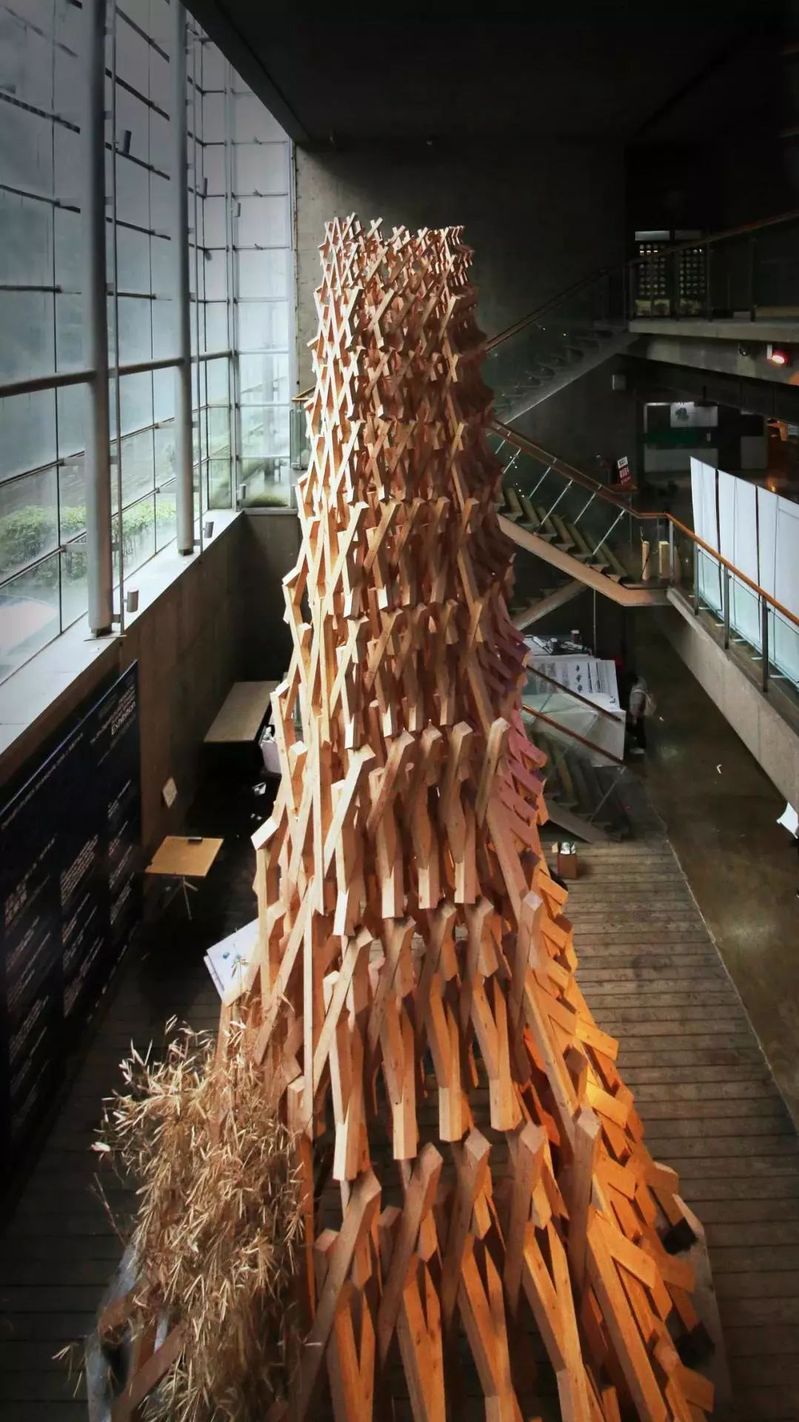
Robotic Carpentry
Instructors:Philip. F. YUAN, Hua CHAI
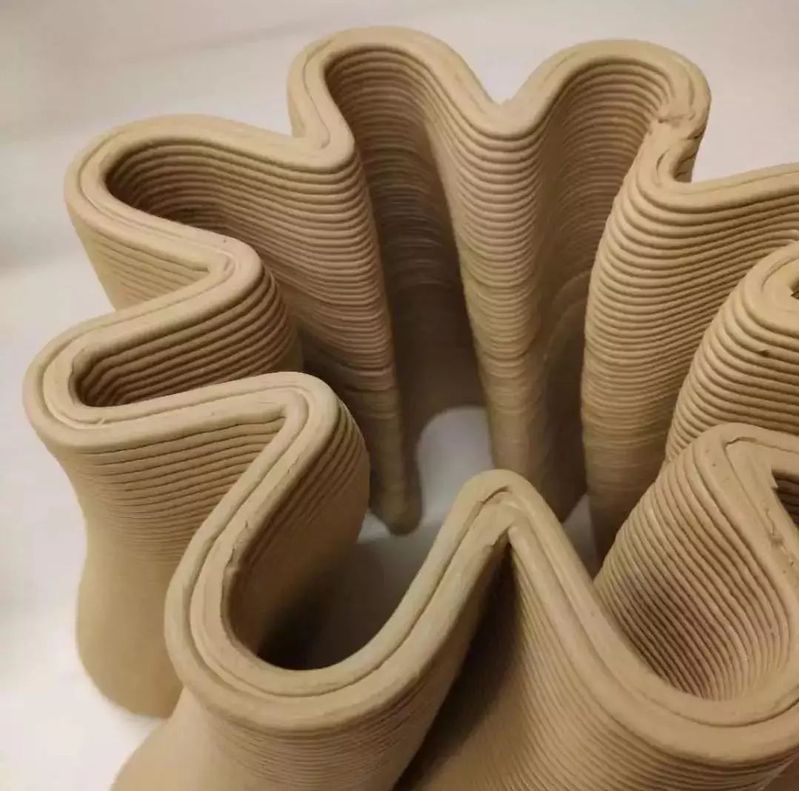
Print Fast, Pile High: Tectonism in 3D Pringting
Instructors:Patrik Schumacher, Shajay Bhooshan, Federico Borello, Taole Chen, Xuexin Duan (ZHA | CODE)
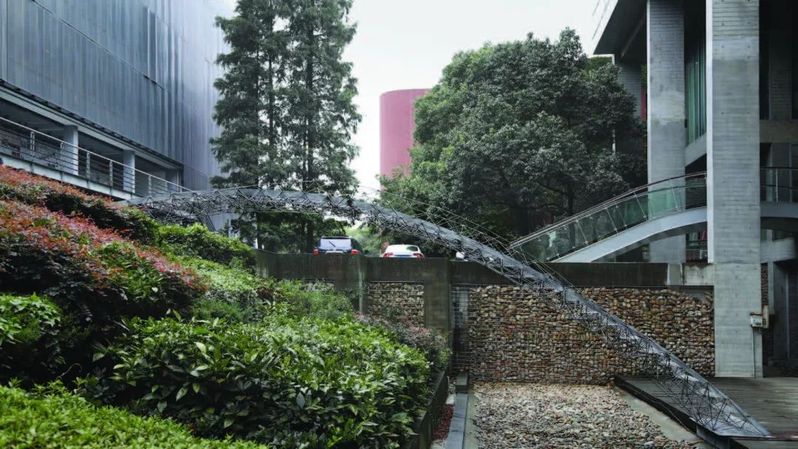
Robotic Metal Printing
Instructors:Philip. F. YUAN
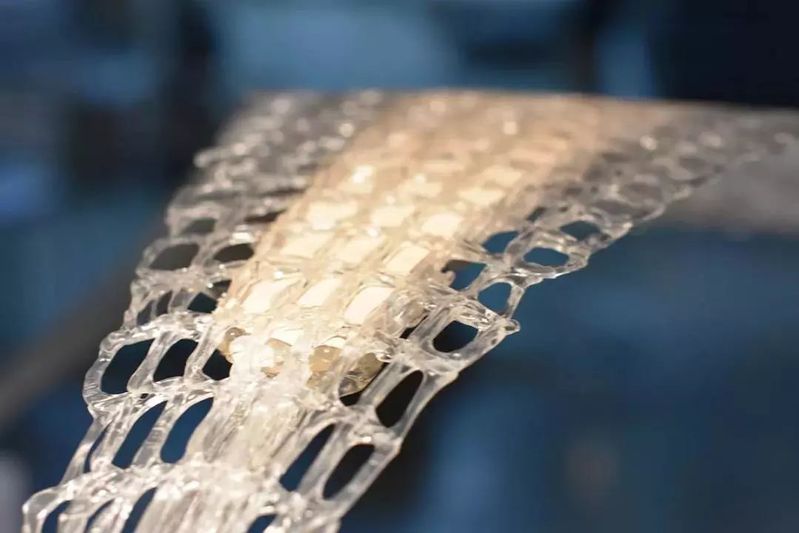
Programming Material Intelligence
Instructors:Achim Menges, Dylan Wood, Tiffany Cheng (ICD Stuttgart)
2017
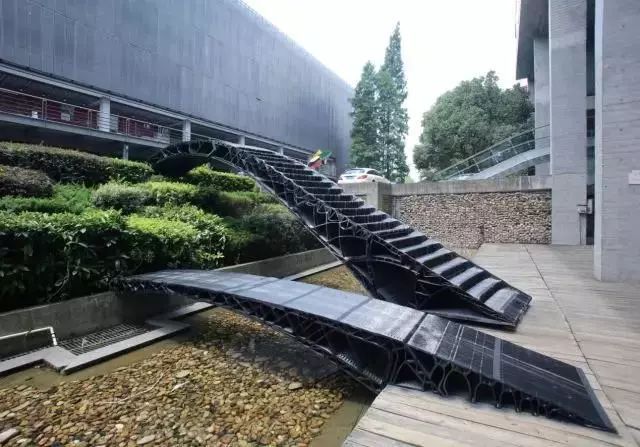
Robotic 3D Printed Architecture
Instructors: Philip F. Yuan, Gang Meng

3D Printed Body Architecture
Instructors:Behnaz Farahi(USC), Neil Leach (Tongji)
2016
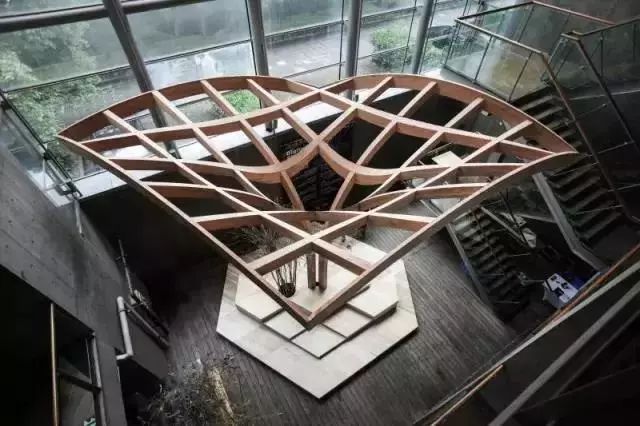
Robotic Wood Architecture
Instructor:Philip F. Yuan
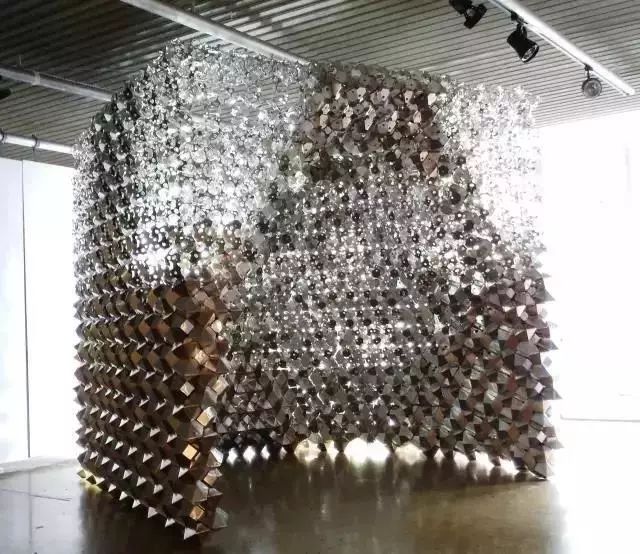
Particle Hut
Instructors:Matias del Campo & Sandra Manninger
2015
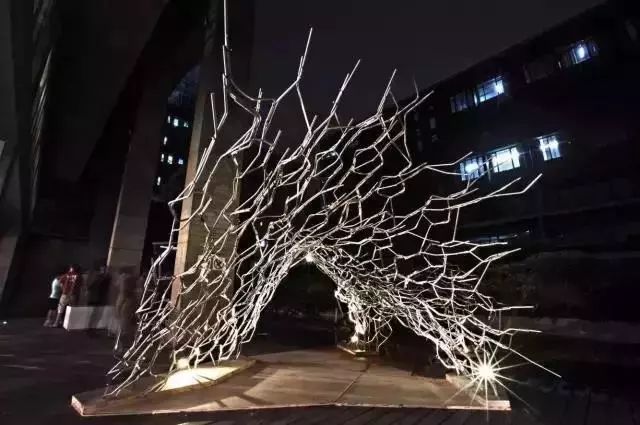
Swarm Fabrication
Instructor:Roland Snooks
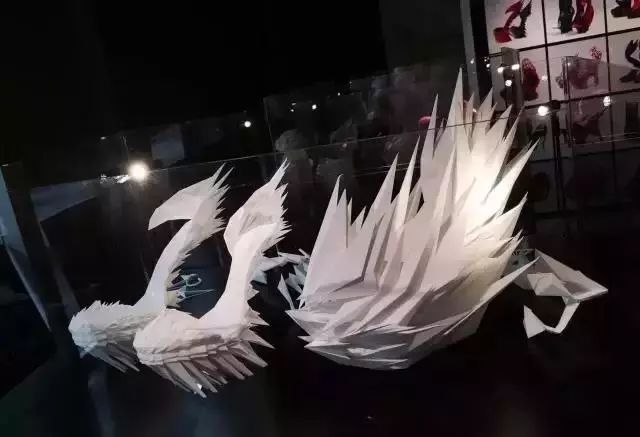
3D Print Wearable
Instructors:Steven Ma, Rem D·Koolhaas